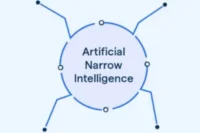Impact of Artificial Intelligence on Society
Published: 1 Nov 2025
Artificial intelligence (AI) is no longer simply a topic for technologists; it has become an integral element of our daily lives. AI is influencing how we live, work, and study, with voice assistants like Siri and Alexa and smart suggestions on YouTube and Netflix.
The key question is, what is the real impact of AI on society? Some regard it as a strong instrument that opens up new options in healthcare, education, and business. Others are concerned about employment losses, privacy violations, and ethical dangers.
In this article, we will explore how AI is changing different parts of society, its benefits, its challenges, and what the future may look like.
Why AI is Important
AI is important because it enables individuals and organizations to complete tasks more quickly, intelligently, and efficiently. Tasks that used to take hours can now be completed in minutes with AI. For example, physicians may use AI to diagnose diseases early, and businesses can use it to improve customer service.
Another reason AI is important is that it makes life easier. AI saves time every day, from avoiding traffic with Google Maps to answering inquiries with smart assistants.
AI is also driving innovation. It enables academics, schools, and enterprises to develop previously impossible solutions. In short, AI is vital because it increases efficiency, promotes growth, and creates new opportunities for society.
Where AI is Changing Society
AI is touching almost every part of our lives. Let’s look at some main areas:
1. Healthcare
AI enables doctors to detect diseases faster and more easily. AI, for example, can analyze X-rays and identify abnormalities that a human eye might miss. It also facilitates tailored treatment strategies for patients. playing a major part in the role of AI in healthcare.
2. Education
In schools and colleges, AI makes learning smarter. Students can get personalized lessons through apps, and teachers can use AI tools to save time on grading. It also helps students with disabilities learn better.
3. Business and Industry
Companies utilize AI to provide customer service, provide online buying suggestions, and manage supply chains. Chatbots respond to client inquiries 24/7, and automation eliminates human error.
4. Farming and Environment
AI assists farmers by forecasting weather, assessing soil, and advising on crop care. It also contributes to the battle against climate change by analyzing environmental data and proposing eco-friendly solutions.
5. Public Life
AI makes cities smarter. From traffic control systems that reduce jams to security cameras that detect unusual activities, AI helps improve safety and daily living.
AI and Jobs
AI is changing the way people work. Some jobs are being replaced, while new types of jobs are also being created.
1. Jobs AI Might Replace
AI can perform repetitive and routine jobs more quickly than humans. AI technologies can currently manage tasks such as industrial machinery, data input, and rudimentary customer support. This means that certain low-skilled employment may gradually disappear.
2. Jobs AI Will Create
At the same time, AI creates new opportunities. Jobs for AI developers, data scientists, and AI trainers are rapidly expanding. Even industries such as digital marketing and design are now utilizing AI techniques, creating new professions.
3. Skills Needed for the Future
To prepare for the future, people must master new skills. These include problem-solving, creativity, coding, and working with artificial intelligence systems. Upskilling and reskilling are critical for people who want to advance in their careers.
Social and Ethical Issues
AI is powerful, but it also raises many social and ethical concerns. If not used carefully, it can create big problems for society.
1. Privacy and Data Safety
AI systems often collect a lot of personal data. If this data is misused or hacked, people can lose their privacy and security.
2. Bias and Fairness
AI works based on the data it is trained on. If the data is unfair, the AI’s results will also be unfair. For example, AI in hiring could favor some groups and ignore others.
3. Trust and Accountability
Who is accountable if artificial intelligence makes a mistake? This remains a significant question. People must trust AI systems, but this trust can only be earned when corporations are open about how AI works.
4. Wrong Use of AI
AI can also be misused. For example, creating fake news, deepfake videos, or using AI for spying. Such uses can harm society if not controlled.
Opportunities vs Problems
AI brings many benefits, but it also comes with challenges. Let’s look at both sides.
Opportunities (Benefits of AI)
- Better healthcare – quicker diagnosis and personalized treatment.
- More comfort – smart homes, online assistants, and easy services.
- Faster work – automation saves time and reduces mistakes.
- Innovation – new products, smarter businesses, and creative tools.
Problems (Challenges of AI)
- Job loss – some traditional jobs may disappear.
- High cost – AI technology is expensive to build and maintain.
- Privacy risks – personal data can be misused.
- Trust issues – people fear mistakes, bias, or misuse of AI.
The Future of AI in Society
The future of AI is bright, but it requires extra preparation. AI will become an increasingly important element of daily life, from the home to the business.
1. AI in Everyday Life
We may see more AI-powered homes, smart assistants, and self-driving cars. Daily tasks will become easier and faster.
2. AI in Workplaces
Businesses will increasingly rely on AI for decision-making, customer service, and automation. This means that individuals will need to gain new abilities in order to work alongside AI.
3. Government and Rules
Governments will play an important role in making clear laws and policies. These rules will help protect privacy, avoid misuse, and build trust in AI.
4. New Innovations
AI will bring fresh ideas to healthcare, climate change solutions, space exploration, and education. These innovations could solve many global challenges.
Conclusion
AI is transforming society in a variety of ways, including healthcare, education, jobs, and daily living. It provides significant benefits, but it also carries hazards such as job loss and privacy problems. In the end, AI is only a tool. If we utilize technology correctly and establish the proper laws, it has the potential to improve everyone’s lives.
Frequently Asked Questions [FAQs]
People often have common questions about how AI is changing our lives. Here are some simple answers to help you understand the impact of AI on society.
AI is changing healthcare, education, jobs, and daily life. It brings comfort and faster results, but also raises issues like privacy and job loss.
No. AI may replace some routine jobs, but it will also create new jobs that need creative and technical skills.
AI uses a lot of personal data. If this data is not protected, it can lead to privacy risks or misuse.
AI is a tool. It may be beneficial or harmful depending on how we utilize it. Responsible usage makes it beneficial, whereas irresponsible use makes it dangerous.

- Be Respectful
- Stay Relevant
- Stay Positive
- True Feedback
- Encourage Discussion
- Avoid Spamming
- No Fake News
- Don't Copy-Paste
- No Personal Attacks

- Be Respectful
- Stay Relevant
- Stay Positive
- True Feedback
- Encourage Discussion
- Avoid Spamming
- No Fake News
- Don't Copy-Paste
- No Personal Attacks





